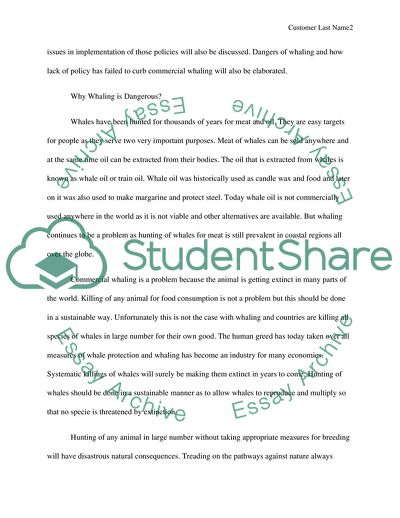Cite this document
(Commercial Whaling - Lack of Suitable Policy Essay, n.d.)
Commercial Whaling - Lack of Suitable Policy Essay. https://studentshare.org/environmental-studies/1755122-with-several-countries-involve-in-the-whaling-industry-there-are-no-regulations-for-these-countries-to-abide-to
Commercial Whaling - Lack of Suitable Policy Essay. https://studentshare.org/environmental-studies/1755122-with-several-countries-involve-in-the-whaling-industry-there-are-no-regulations-for-these-countries-to-abide-to
(Commercial Whaling - Lack of Suitable Policy Essay)
Commercial Whaling - Lack of Suitable Policy Essay. https://studentshare.org/environmental-studies/1755122-with-several-countries-involve-in-the-whaling-industry-there-are-no-regulations-for-these-countries-to-abide-to.
Commercial Whaling - Lack of Suitable Policy Essay. https://studentshare.org/environmental-studies/1755122-with-several-countries-involve-in-the-whaling-industry-there-are-no-regulations-for-these-countries-to-abide-to.
“Commercial Whaling - Lack of Suitable Policy Essay”. https://studentshare.org/environmental-studies/1755122-with-several-countries-involve-in-the-whaling-industry-there-are-no-regulations-for-these-countries-to-abide-to.


